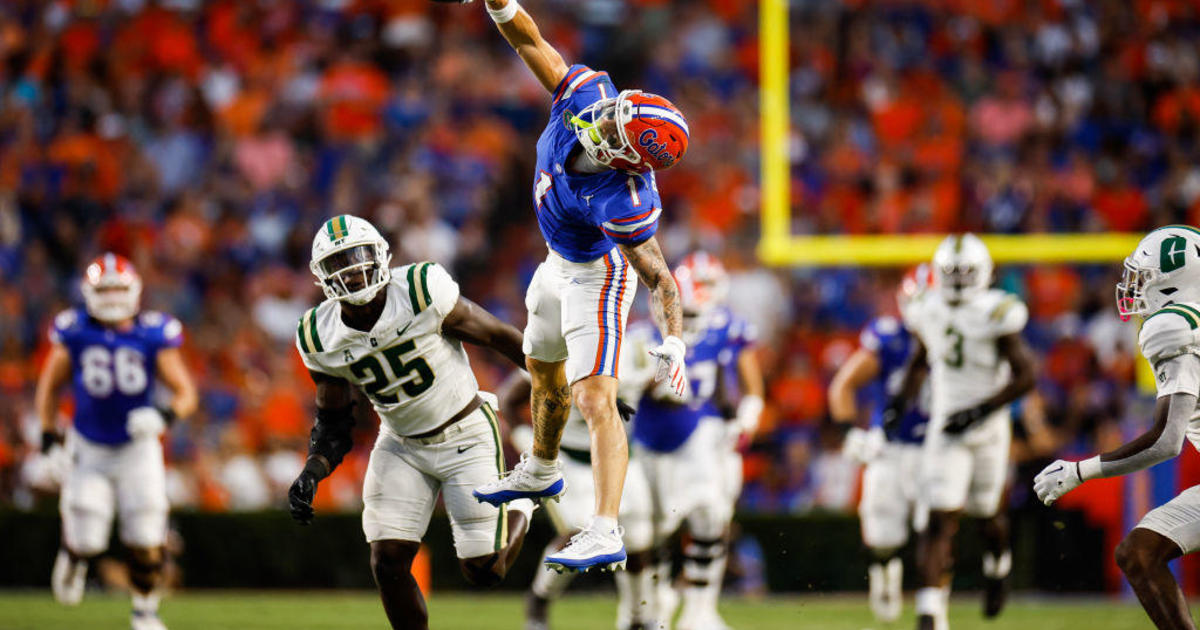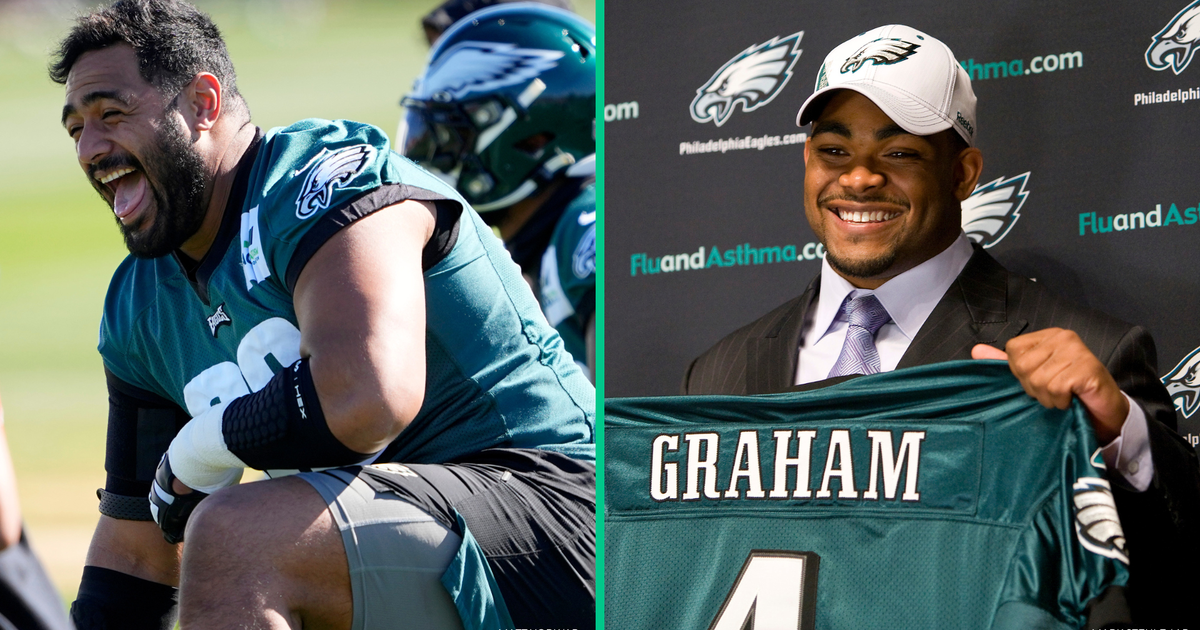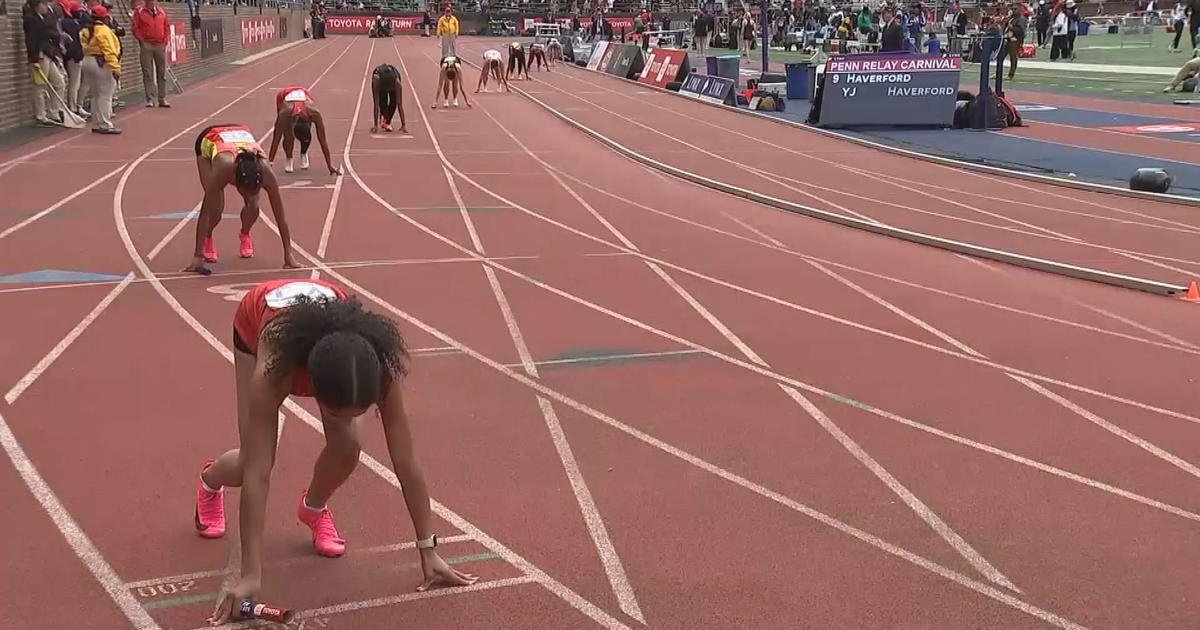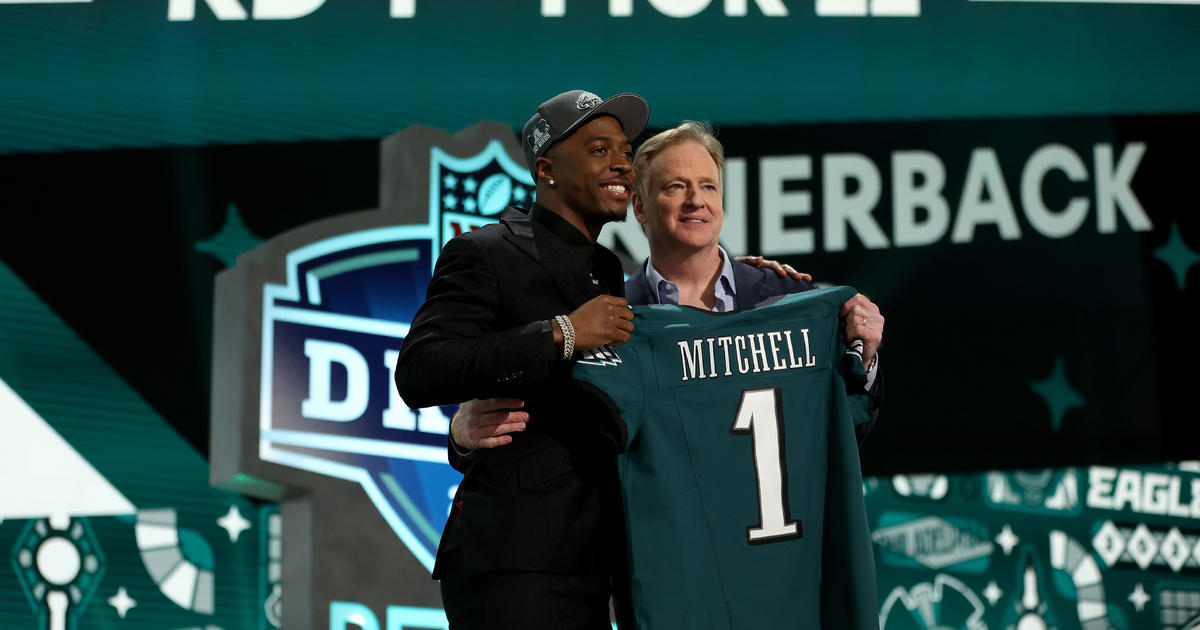Jackson May Never Be The Same Again
PHILADELPHIA (CBS)-- In boxing, it happens frequently. The severe, jarring blow to the chin and the concussed fighter falling, out before his head even touches the canvas. Shuddering blasts in boxing can ruin a fighter, make him skittish, and more importantly, open the door for future concussions to occur repeatedly—and much easier.
Take a look at the photo above at the shot DeSean Jackson took from Atlanta's Dunta Robinson in the second quarter of the Eagles' 31-17 Sunday's victory over the Falcons. Take a good, strong look. Notice something? Something in particular that's much like the expression of a fighter who was just knocked out?
Jackson wore a blank, eyes-closed concussed mask as he was falling to the field. Jackson was knocked out before he even touched the ground. Robinson had projected himself like a human missile right into Jackson's chin and his chest—a knockout blow from a 500-pound heavyweight, when you consider Robinson's running start and the thudding impact the crown of his helmet had on Jackson's jostled brain.
Pro fighters, by law, are given 90 days to recover from a jolting hit like that. Speculation was that Jackson may need a month. A number of questions have to be asked: Will Jackson ever be the same again? Is his long-term health at risk, and will he ever be able to absorb a hit like that again?
So while sports debates rage and swirl throughout Philadelphia about the legality of the hit, and whether or not Robinson should be fined or suspended, what can not be lost here is the health of a 23-year-old, three-year pro on the verge of superstardom. And whether that same dynamic, game-breaking player will ever appear again.
"I'd love to see DeSean Jackson on the field again, anyone who loves football would love to see that, but he has to be cautious, he has to listen to what the doctors are telling him and he has to be honest with them," said ESPN pro football analyst Merril Hoge, who should know a thing or two about concussions, since his eight-year pro career was prematurely cut short in 1994 due to multiple concussions.
"Guys want to come back and play. They want to prove themselves. That's why I say DeSean has to be honest with his doctors. The NFL is taking this issue much more seriously now than it ever has, certainly much better than it did as recent as 10 years ago. What concerns me is when guys project themselves and make helmet-to-helmet contact with players. There has to be a better way to tackle, and it's not happening. The league is taking a more proactive approach as to what is the proper healing time between concussions, and I hope that's what DeSean gets here, that he's not rushed into coming back."
Dr. Brian McDonough, KYW's resident medical analyst, also fears players that suffer that type of head trauma trying to come back too quickly.
McDonough was watching the game and his first concern when Jackson went down was whether or he was paralyzed. When Jackson got up, after being down for close to five minutes, it became pretty apparent Jackson suffered a concussion.
"I wouldn't be surprised if Jackson is out for an extended period of time," Dr. McDonough said. "This is a highly sensitive area. We're talking being extremely careful, because you have someone with a prior history of concussions, which makes him more likely to have problems with each and every episode. That's a major concern.
"What you don't know, what's the scary part is knowing a person's tolerance level. You take a major chance when you put someone back on the field without giving them enough time to heal properly. Depending on who you talk to, different players are given different levels of time to heal. But we do know this about catastrophic brain injuries, the more times you have them, it doesn't take that dramatic a hit to have repeated concussions."
McDonough cited two local examples: Former Eagles' fullback Kevin Turner and former Flyer Eric Lindros, who suffered six concussions during his playing career—the most memorable was when Lindros was laid out by the New Jersey Devils' Scott Stevens on May 27, 2000, in Game Seven of the NHL's Eastern Conference finals.
"It's scary. I saw the mouthpiece pop out of his mouth and I think everyone was looking to see if he was conscious," New Jersey's Claude Lemieux said at the time. "It's a big loss for the game if he's not able to come back."
But in the NFL, where there are no guaranteed contracts, and next year, Jackson's four-year deal with the Eagles will be up. That comes into play when a player wants to return. The NFL is a macho culture, McDonough points out, where if you don't perform, there is always someone else there to replace you.
"Their lives depend on getting out there, and it's why you have a weird dynamic with professional sports," McDonough said. "But the bottom line is the player's health. The medical staffs of these teams are taking much better care of players today when it comes to head trauma, and Eagles' trainer Rick Burkholder is on the cutting edge with head injuries. It's an issue he's very committed and very involved with. Personally, I'd like to see Jackson get an extended period of time off for his recovery, because you need that time to heal."
And hopefully a return to the explosive player the NFL has grown accustomed to seeing.
Reported by: Joseph Santoliquito



